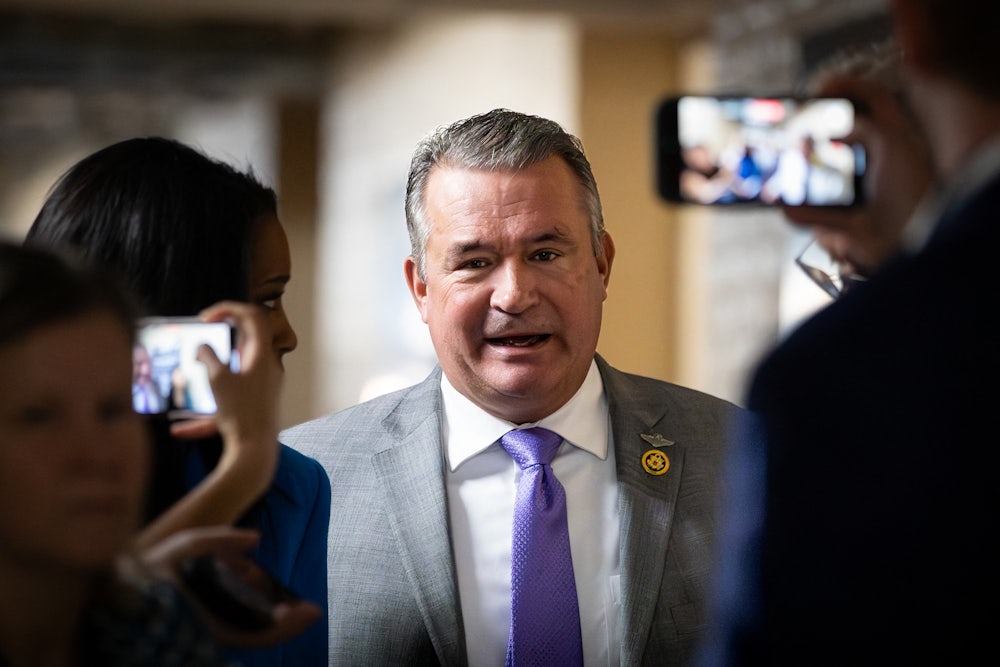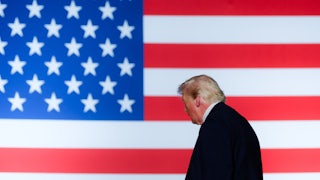Back in March, as the GOP drafted President Trump’s One Big Beautiful Bill, 21 House Republicans sent a letter to the chairman of the House Ways and Means Committee urging him to preserve the Inflation Reduction Act’s clean energy tax credits. The letter argued that the Biden-era credits were already helping to “increase domestic manufacturing, promote energy innovation, and keep utility costs down.”
On July 3, every one of those 21 Republicans voted for the final version of the legislation, which eviscerated those credits.

I was curious how these representatives would justify their votes, so I asked them. Only one member, Don Bacon of Nebraska, got back to me. He pointed to the OBBB’s nuclear and biofuels provisions, admitted he didn’t get all he wanted on wind and solar, and explained that he “had to weigh the bill in its entirety” because “in the end, America needed the tax rates for individuals to become permanent.” Translation: Decreasing domestic manufacturing, undermining energy innovation, and raising utility costs is just the price you pay for cutting taxes for millionaires and billionaires.
As for the rest of the signatories’ reasoning, we’ll have to make our own deductions. Here’s my best bet: These Republicans, like most GOP politicians in 2025 who aren’t committed fascists, are spineless cowards who can be counted on to sell out their constituents in order to protect themselves from Trump’s reprobation. (Thomas Massie and Brian Fitzpatrick, the only two Republicans to vote against the OBBB, are exceptions that prove this rule.)
But that made me curious about a secondary question: Could this particular instance of cowardice come back to bite these cowardly 21 Republicans? The current conventional wisdom would seem to be no. Searchlight Institute, a new billionaire-funded Democratic think tank, is telling Democrats, “Don’t say climate change.” Public support for clean energy and climate action is, according to many accounts, at a nadir. Right?
Not so fast. The Yale Program on Climate Change Communication maintains a database of public opinion survey data on climate change, and it contains information on eight of the Cowardly 21’s congressional districts. The numbers tell a striking story.
In New Jersey’s 7th district, represented by Tom Kean Jr., 68 percent of voters report that they are “worried about global warming” and 66 percent support transitioning the U.S. economy “from fossil fuels to 100% clean energy by 2050.” In Virginia’s 2nd district, represented by Jen Kiggans, 60 percent are worried about global warming, while 70 percent support transitioning by 2050. All of the available districts are in this range; the lowest numbers, in Iowa’s 1st district, represented by Mariannette Miller-Meeks, still represent a strong climate majority, with 58 percent worried about global warming and 60 percent supporting a clean energy transition.
Of course, the abstract threat of climate change is never going to make the most compelling message, in the same way that Vice President Kamala Harris’s running on “democracy” was not motivating to many voters. Whenever we’re dealing with such big, hard-to-grasp ideas, we need to connect them to people’s material concerns. That’s how you shift an issue’s salience from “I generally support this” to “I’m going to get out and vote based on this.”
But the numbers in the Yale database—strong majorities, veering into supermajorities, who report they’re worried about climate change and support the phaseout of fossil fuels, even in Republican districts—mean that climate change is fertile ground for such efforts. And there are ample kitchen-table arguments for climate policy. There are the clean energy benefits cited in the Cowardly 21’s letter: increasing domestic manufacturing, promoting energy innovation, and keeping utility costs down. There are the millions of Americans struggling from out-of-control home insurance rates in areas vulnerable to climate-related disasters. There are the profound human and economic costs of these disasters: the lethal floods in Texas, apocalyptic fires in Los Angeles, hurricanes across the East Coast, and extreme heat in the Southwest.
And there are all the other everyday ways in which climate change is destroying the things we love. Earlier this month I was talking to a friend, an avid hunter who had recently returned from a trip to Northern Maine. He described how he’d never seen the area, which he’s been visiting for years, in such severe drought, and said that he only encountered around 20 percent of the grouse that he would normally come across on such a trip. (Maine just had one of its driest summers ever recorded.) He didn’t initially connect this disappointing hunting experience to climate change—but a few minutes after I made the connection, he was complaining about the Trump administration’s corrupt efforts to shut down clean energy on behalf of Big Oil.
Democrats need to make those connections, which together comprise a powerful political message. There’s no reason the Cowardly 21 shouldn’t pay an electoral price for their willingness to throw their constituents—other than the really rich ones—under the bus. There’s political gold here. Let’s start mining it.






